What you need to know about sustainability in Vietnam real estate
One 272-hectare smart city project will be worth USD 4.2 billion.
Sustainability has been a popular topic in several industries across the globe, and real estate is no exception. JLL cites the World Bank Analysis (2020) which says of the shape and growth of over 10,000 cities between 1990 and 2015, the most successful urban areas are the ones that connect their comprehensive development plans to economic demand, focusing on liveability and sustainability.
With its 146 green building projects in 33 cities and provinces as of 2020, JLL says Vietnam displays a national commitment to the sustainable development concept by upgrading living quality in dense urban regions (YCP Solidiance, 2018; IFC, 2020).
Notably, in a JLL survey, 51% of respondents considered sustainability as one of the most sought-after factors in new development. This article highlights a few major and commonly used sustainability models and their specific applications in the real estate market in Vietnam.
Here’s more from JLL:
Generally, sustainable practices are still a new concept, limited to three main categories – LEED by the US Green Building Council, LOTUS by the Vietnam Green Building Council, and EDGE by the International Finance Corporation (IFC). EDGE certifications were the most well-presented in the Vietnam real estate market, with over 62% in total GFA certified, equivalent to nearly 2 million sqm (Figure 1).
Due to its convenient features for emerging markets, EDGE has become more and more popular. Vietnam ranked number one globally in EDGE certifications by floor areas in a VIR’s report (2019). Especially in the residential segment, the certification nearly took up the entire market share with over 99% in total certified floor areas (Figure 2). Its customed features like technical skills, application and cost advantage for domestic business entities contributed to massive succession. Meanwhile, the other sustainable systems such as LEED tended to be more complicated to explore and implement in commercial practice.
Smart buildings and smart cities are enablers of the sustainability
Smart buildings with abilities to automatically control and optimise efficiencies can help up to 15% energy savings in isolated systems and 30-50% savings in an integrated system (ACEEE, 2017). The implication here is that, while working to improve the sustainability aspects of new developments, players should have a broader perspective, examining how to integrate both with smart development – another key prevailing trend in the market.
Actions recalled for both private and public sectors
Although smart cities/buildings and sustainability have gained popularity in recent years, there has been no coherent framework to support smart and sustainable development in Vietnam. It can be accomplished only if both the public and business sectors contribute. While the public can actively take the first step to expedite the process, Intelligent Operation Centre (IOC)should launch applications or software programmes to integrate data received from technological functions. This big data can be leveraged to manage and reduce energy usage and waste with solutions for sustainable developments.
In Vietnam, the implementation of two pilot projects in two large cities has demonstrated the commitment of both the governmental and commercial sectors to this campaign:
- Ho Chi Minh City: Eco Smart City developed by Lotte Group plans to be the first smart city in Vietnam. Located in Thu Thiem New Urban Area, the project master plan was already approved by Ho Chi Minh City People’s Committee in December 2021 and is ready to kick off soon.
- Hanoi: Collaboration between BRG Group (Vietnam) and Sumitomo Corporation (Japan) to construct Nhat Tan – Noi Bai area and connect Hanoi CBD with Noi Bai International airport, aiming to be one of the most modern smart cities in Southeast Asia. The project is expected to be constructed on 272ha with a total investment of USD 4.2 billion.
While Vietnam still has a long way to go, heightened awareness and a strong commitment to sustainability can reflect the engagement of public and private sectors in this initiative. This suggests a trend in which sustainability and smart design in new developments are regarded as “must-have” rather than “nice-to-have” features, as they were in the past.

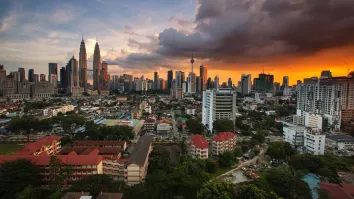
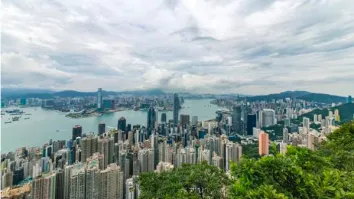
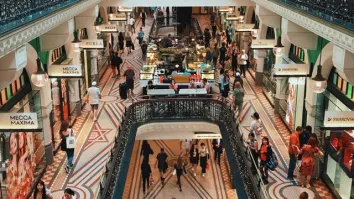
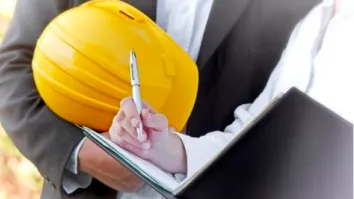
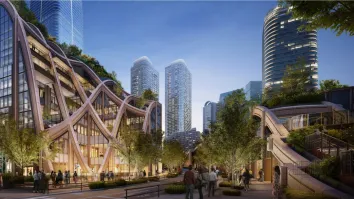

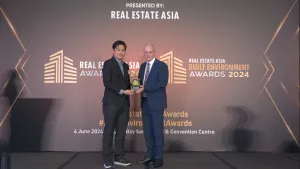
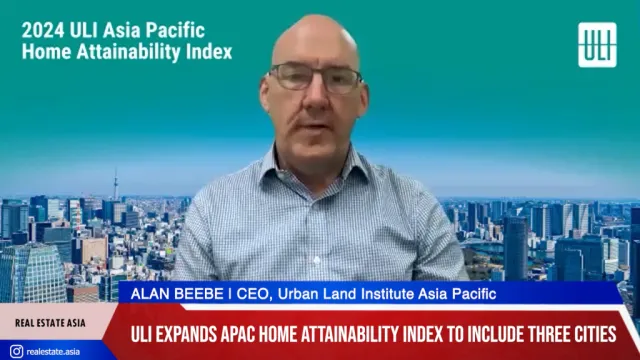


 Advertise
Advertise






